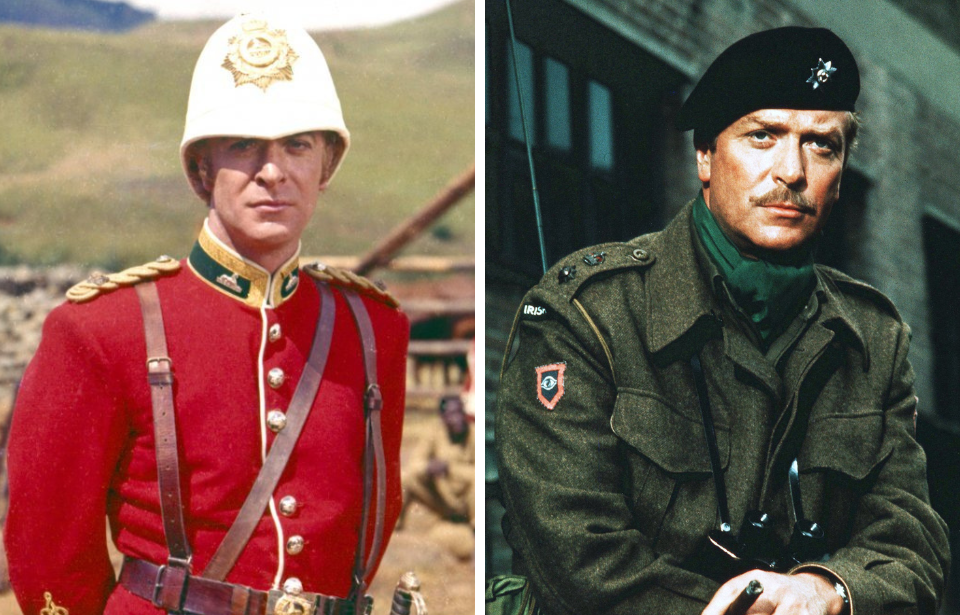Sir Michael Caine is a legend of the silver screen, with many of his appearances being in war- and military-related movies. He began acting in the 1950s, but didn’t become the star we know and love until after his service with the British Army. Between 1952-54, he served with the Royal Fusiliers, and he was also stationed at the British Army of the Rhine Headquarters in West Germany. Following this, he was deployed to Korea.
In anticipation of Caine’s latest role as World War II veteran Bernard Jordan in The Great Escaper, here’s his impressive resume of war and military movies.
Morning Departure (1950)
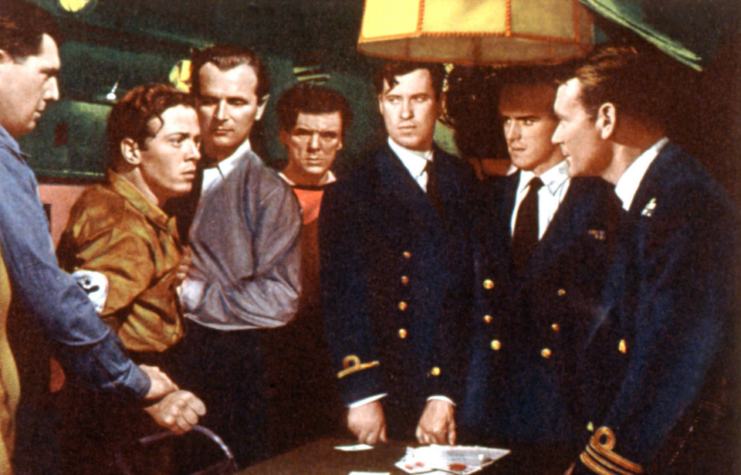
Morning Departure (1950) is a British war drama starring John Mills, Richard Attenborough and Bernard Lee. It’s set during the Second World War, and revolves around the crew of the fictional submarine HMS Trojan. After a routine training exercise goes awry, the vessel becomes trapped on the seabed at a significant depth.
The movie was Michael Caine‘s first role, with him portraying Teaboy. He was uncredited for the part, although it was the first of many war films over the course of his distinguished career.
Michael Caine’s early war movie roles
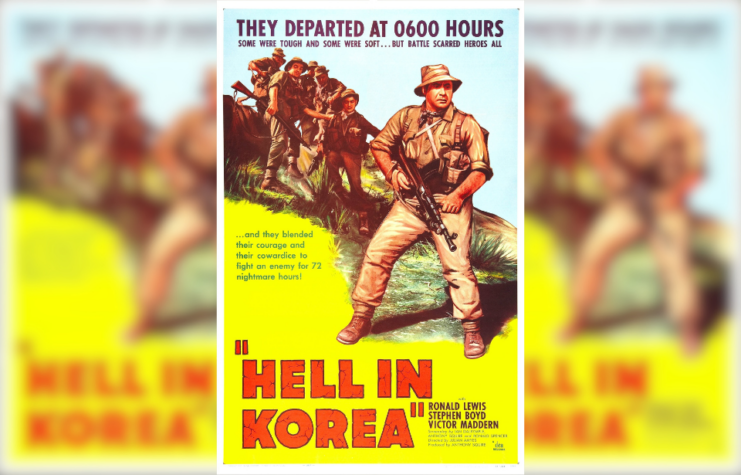
Michael Caine’s second war movie was 1956’s A Hill in Korea. Set during the Korean War, it follows a British Army unit assigned to defend a strategically important hill from the advancing Chinese forces. The story unfolds against the backdrop of the harsh Korean terrain and challenging weather conditions, and focuses on the experiences of the soldiers in the unit, highlighting their camaraderie, struggles and personal conflicts as they face the realities of combat.
Caine portrayed Pvt. Lockyer, a character he likely could identify with, having served in Korea himself.
In 1957, the actor was uncredited for playing a soldier named Caine in the WWII-era film, The Steel Bayonet. The following year, he portrayed a “Thirsty Prisoner on Train” in Carve Her Name with Pride (1958), and also played an uncredited role in the 1958 film, The Key, about the Battle of the Atlantic.
In The Two-Headed Spy (1958), Caine portrayed a Gestapo agent, after which he took on an uncredited role as a prisoner in the 1959 film, Danger Within, set in a prisoner of war (POW) camp in northern Italy during the Second World War. In 1960’s Foxhole in Cairo, based on the novel by Leonard Mosley, Caine made a minor appearance as a German soldier named Weber.
Zulu (1964)
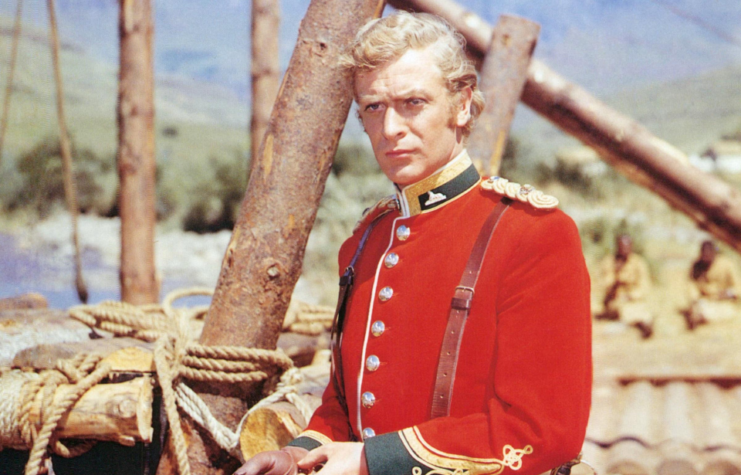
Zulu (1964) is one of Michael Caine’s greatest movies and is an epic war feature based on the true events of the Battle of Rorke’s Drift during the Anglo-Zulu War of 1879. It depicts the heroic defense of a small British garrison against a much larger Zulu force.
Caine plays the role of Lt. Gonville Bromhead, a British officer who finds himself in a leadership position during the engagement. Alongside Lt. John Chard (Stanley Baker), Bromhead plays a critical role in organizing the defense of the mission station against the Zulu warriors. The film showcases the camaraderie and unity among the British soldiers as they come together to fend off wave after wave of Zulu attacks.
Caine’s performance as Bromhead is often considered a breakthrough role in his career, establishing him as a talented and versatile actor. The film’s been praised for its historical accuracy, breathtaking cinematography, and portrayal of the bravery and determination of both the British soldiers and the Zulu warriors. Its depiction of the Battle of Rorke’s Drift remains a memorable and iconic cinematic representation of a significant historical event.
Recently, Zulu has come under fire, with some saying that it promotes far-right extremism. Caine defended the release, saying, “There are no films I wish I hadn’t made.” When specifically asked about the criticism of Zulu, he exclaimed, “That is the biggest load of bull**** I have ever heard.”
Mangosuthu Buthelezi, the current Chief of the Zulu tribe, also defended the film, saying, “It should not be viewed through a 21st-century lens.” He also told The Times, “Even if the past is uncomfortable, and perhaps especially when the past is uncomfortable, it needs to be examined and unpacked rather than hidden away.”
Play Dirty (1969)
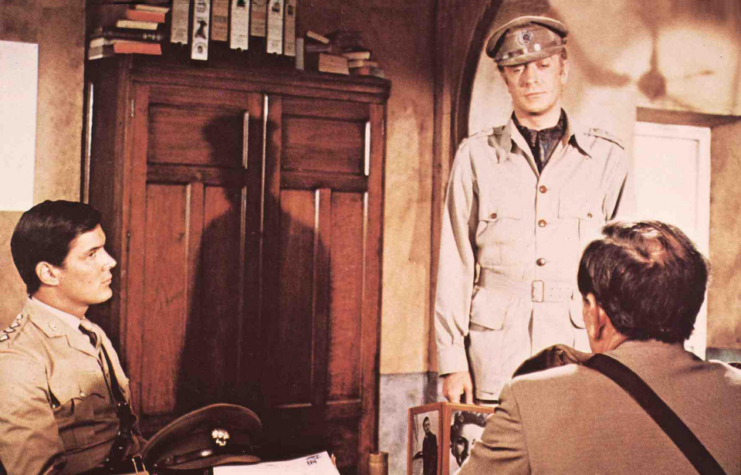
Play Dirty (1969) is set during the Second World War and follows a group of British soldiers tasked with a dangerous and morally complex mission behind enemy lines in North Africa. Michael Caine stars as Capt. Douglas, the British officer chosen to lead this motley crew of men on a mission to destroy a German fuel depot.
Caine’s portrayal of Douglas showcases the character’s pragmatic and ruthless approach to achieving their objectives. The film delves into the tension between the soldiers’ personal survival instincts and the demands of their mission, often forcing them to make difficult choices that challenge their own morality.
Battle of Britain (1969)
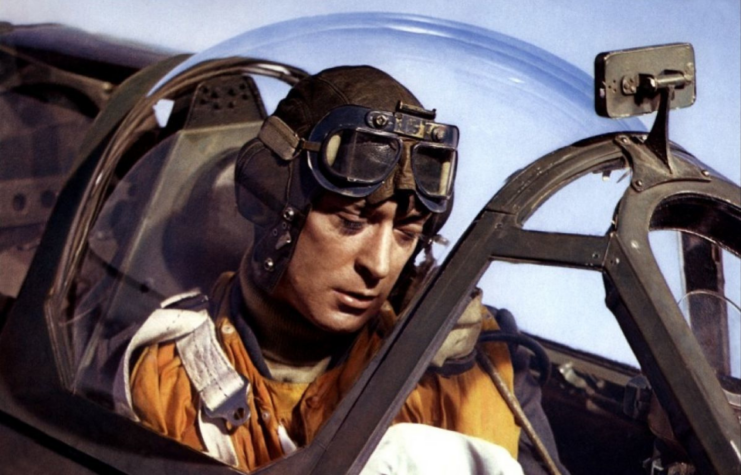
Battle of Britain (1969) chronicles the epic battle between the Royal Air Force (RAF) and Luftwaffe during the summer and fall of 1940. It was directed by Guy Hamilton, famous for heading various James Bond films, and boasts a star-studded cast, including Laurence Olivier, Christopher Plummer, Edward Fox, Robert Shaw and Michael Caine.
The film recreates the intense air combat sequences and the strategic decisions made by both sides as they clashed over the skies of southern England. The RAF’s valiant efforts to repel the German bombing raids and protect British cities from invasion form the central focus of the movie. The aerial dogfights are particularly notable for their realism and attention to historical accuracy.
Battle of Britain provides a tribute to the bravery and resilience of both the British pilots and the ground crews who supported them. It depicts the dedication, sacrifice and resourcefulness of those involved in defending against the overwhelming German forces.
Too Late the Hero (1970)
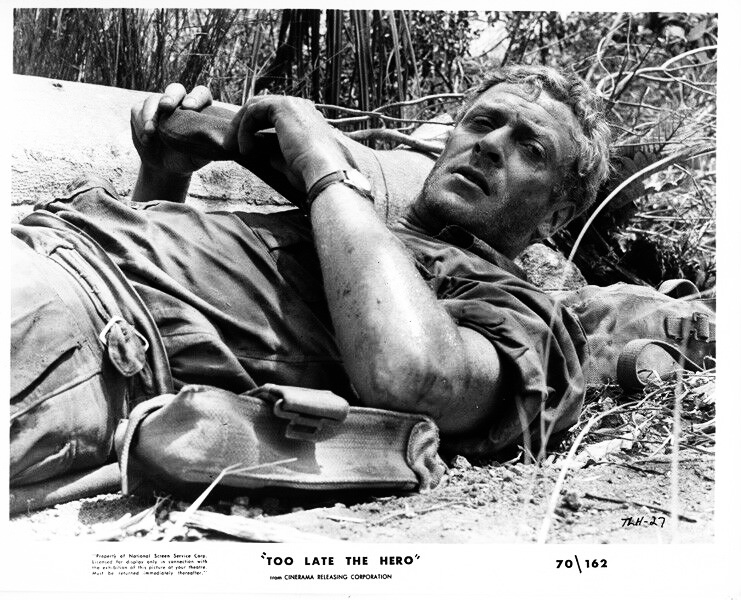
The WWII-era film Too Late the Hero (1970) centers around a group of Allied soldiers who are sent on a dangerous mission behind enemy lines in the Pacific. Michael Caine stars as Pvt. Tosh Hearne, a British soldier who finds himself reluctantly thrust into a leadership role within the group.
The troops are tasked with destroying a Japanese observation post on a remote island, but their mission becomes more and more perilous as they face not only the challenges posed by the enemy, but also the harsh jungle environment.
The Eagle Has Landed (1976)
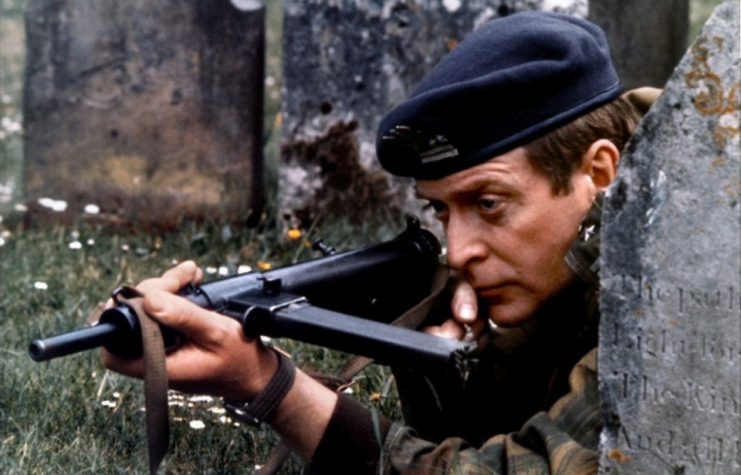
The Eagle Has Landed (1976) is based on the novel of the same name by Jack Higgins. Set during the Second World War, it presents a fictionalized account of a daring German plan to kidnap British Prime Minister Winston Churchill.
Michael Caine stars as Col. Kurt Steiner, a German paratrooper chosen to lead a special Commando unit on a covert mission. The objective is to infiltrate a small English village and seize Churchill during his visit to the area. The plan is motivated by the belief that the prime minister’s capture could potentially alter the course of the war.
The Eagle Has Landed features an ensemble cast that includes Donald Sutherland, Robert Duvall, Jenny Agutter and Donald Pleasence. It combines historical events with fictional elements to create a gripping drama that explores themes of honor, duty and the complexities of war from multiple perspectives.
A Bridge Too Far (1977)
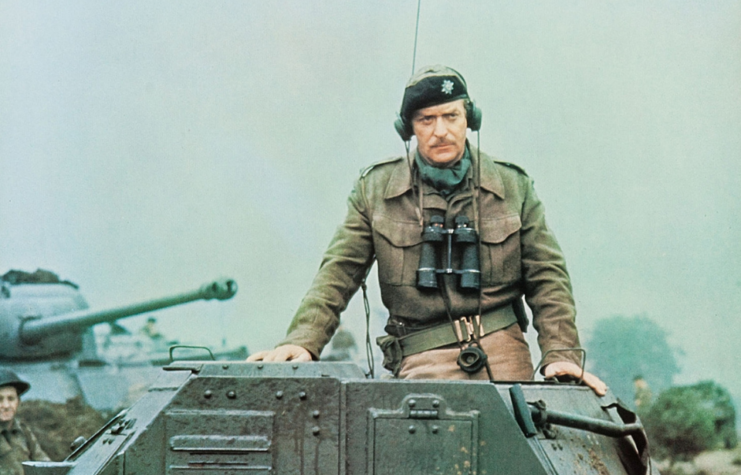
A Bridge Too Far (1977) is based on the non-fiction book of the same name by Cornelius Ryan. Considered one of the greatest war movies ever released, it was directed by Richard Attenborough and depicts Operation Market Garden.
The film boasts an impressive cast, including Dirk Bogarde, Edward Fox, Sean Connery, Anthony Hopkins, Ryan O’Neal, Robert Redford, James Caan, Gene Hackman and Laurence Olivier. Michael Caine portrays Lt. Col. John O.E. Vandeleur, commanding officer of the 3rd Battalion (Infantry), Irish Guards, Guards Armoured Division, XXX Corps, British Army.
Escape to Victory (1981)
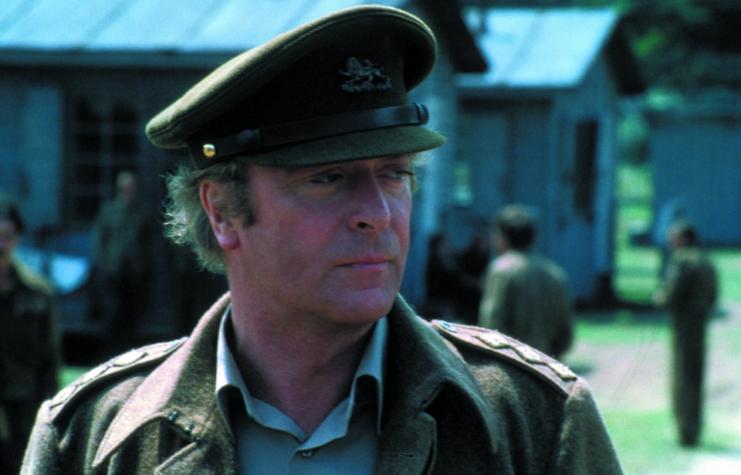
Escape to Victory (1981), known simply as Victory in North America, is a sports war film that takes place during WWII. In addition to Hollywood actors, including Michael Caine and Sylvester Stallone, it also stars professional athletes, such as Bobby Moore and Pelé.
Caine stars as Capt. John Colby, a British prisoner of war and former professional football (soccer) player. The film is set in a German POW camp, where the German officers organize a propaganda match between a group of Allied POWs and the German national team. The aim is to boost morale and create a spectacle that showcases German superiority.
The prisoners, with a range of sporting abilities, come together to train and prepare for the match. However, they see an opportunity to use it as a cover for an escape attempt. As Escape to Victory progresses, the prisoners gradually work on their plan. Colby takes on a leadership role, showcasing his determination and strategic thinking.
The Fourth Protocol (1987)
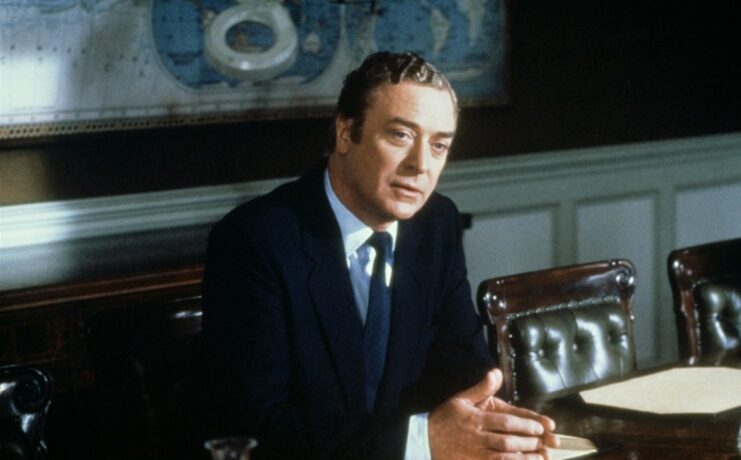
Based on the 1984 novel by Frederick Forsyth, The Fourth Protocol (1987) is a Cold War-era spy thriller starring Michael Caine and Pierce Brosnan. Caine portrays MI5 agent John Preston, while Brosnan tackles the part of KGB officer Maj. Valeri Alekseyevich Petrosky, with the latter tasked by the Soviets to break the “fourth protocol” by detonating an atomic device on British soil to create a false flag incident.
It was actually Caine’s idea to turn the novel into a movie. After reading the manuscript for the release, he approached Forsyth and suggested they work on a feature together. While the production suffered a few bumps along the way, it ultimately came to fruition.
Dunkirk (2017)
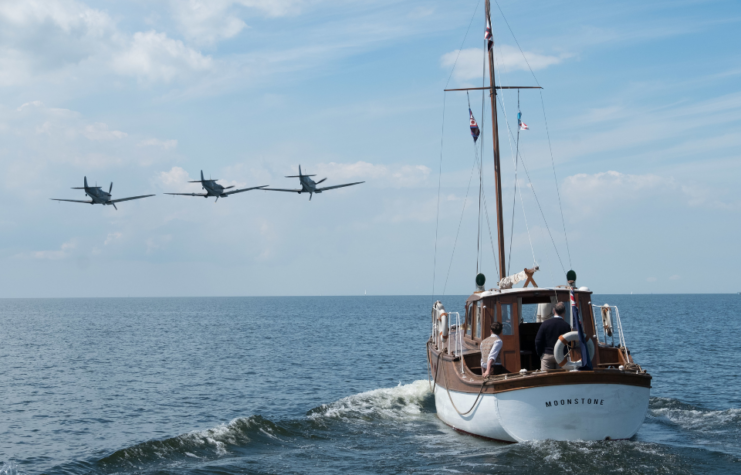
Dunkirk (2017), written and directed by Christopher Nolan, is a dramatic retelling of the true events surrounding the evacuation of British and Allied troops from the beaches of Dunkirk during the Second World War. The film is divided into three intertwined storylines that unfold across land, sea and air. Each perspective provides a different vantage point of the evacuation, creating a comprehensive and immersive experience for the audience.
The land-based story follows a group of British soldiers stranded on the beaches of Dunkirk, struggling to find a way to escape while under constant attack. The sea-based perspective focuses on a civilian vessel and its crew as they sail across the English Channel to rescue stranded soldiers. The air-based storyline showcases the intense dogfights between Royal Air Force pilots and German fighter aircraft, providing an aerial view of the events.
Michael Caine makes an uncredited cameo in this war movie, giving orders to two Supermarine Spitfire pilots over the radio. Nolan said, “I wanted very much to squeeze him in here. It’s a bit of a nod to his character in Battle of Britain.” He also joked, “It’s shocking to me that a lot of people haven’t [noticed the cameo] when he has really one of the most distinctive voices in cinema.”
Medieval (2022)
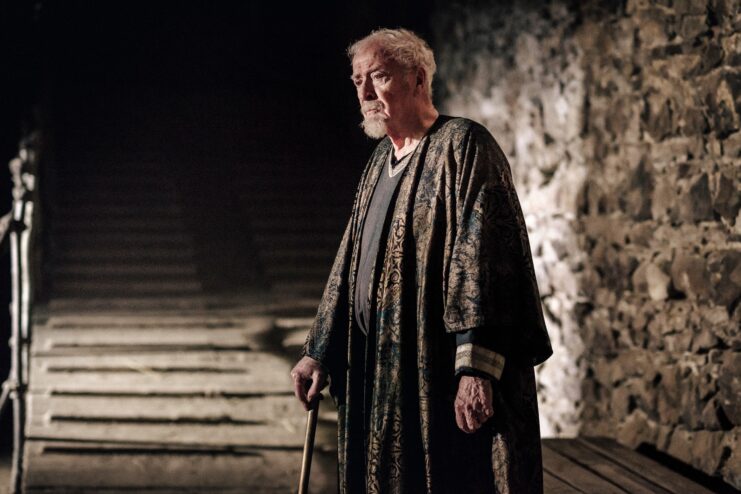
A film that received relatively little fanfare upon its release, Medieval (2022) centers around the exploits of Jan Žižka, who led the Hussites through three crusades without losing a single battle – an incredible feat that solidified his place in history. Taking place before the Hussite Wars of 1419-34, the feature focuses on Žižka’s rise and how he became a fearsome military commander.
Michael Caine portrays the role of Lord Boresh in the film, who tasks Žižka (Ben Foster) with a mission that launches Medieval into a bloody and deadly tale. The future military commander winds up involved in high politics, which ultimately leads him to showcase his skills on the battlefield.
The Great Escaper (2023)
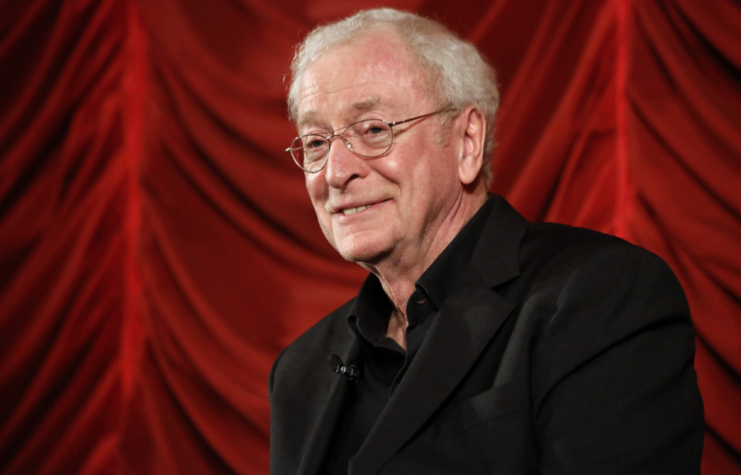
This upcoming film stars Michael Caine and the late Glenda Jackson, and is based on the true story of British WWII veteran Bernard Jordan, who “escaped” from his nursing home in 2014 to attend the 70th anniversary of the D-Day landings in France. The stunt resulted in the world becoming enamored with Jordan, who proudly stood alongside his fellow veterans.
More from us: Ex-Submarine Commander David Marquet Rates Naval Scenes from Popular Movies
Pulled by the story, Michael Caine actually put his retirement on hold to star in the film, which is slated for release in October 2023.
